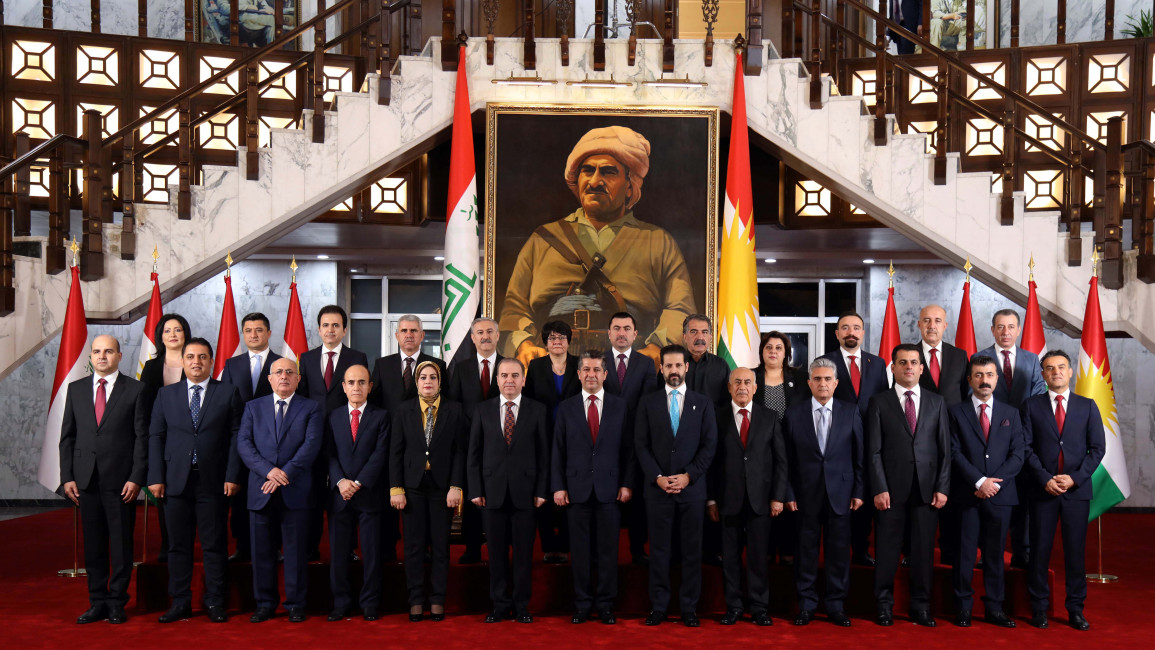Political disagreements paralyse Iraqi Kurdistan region's parliament and cabinet
Despite local and international calls for Iraqi Kurds to solve internal disputes, political disagreements between the two main ruling parties in the Iraqi Kurdistan region, the Kurdistan Democratic Party (KDP) and the Patriotic Union of Kurdistan (PUK), have crippled the Kurdistan Regional Government (KRG).
Pentagon chief Lloyd Austin, who visited the Iraqi Kurdistan region on Tuesday, advised Kurdish officials to settle local disputes and unite the Kurdish peshmerga forces to maintain stability in the semi-autonomous region of northern Iraq.
Qubad Talabani, the KRG deputy prime minister from PUK, and four other ministers have boycotted the cabinet's regular sessions since October 2022.
KRG's prime minister, Masrour Barzani, said in a statement on 6 March that they have on several occasions asked the KRG deputy PM and the PUK ministerial team to return to the cabinet's weekly meetings and "respect the confidence of people and the parliament."
"We have also officially asked them to return, but, unfortunately, they [the team] have not been allowed [by the party] to attend [the KRG meetings]," Barzani clarified.
Bafl Talabani, PUK's president, last week while speaking at Erbil Forum, said that neither the KRG nor the KDP contacted the PUK's governmental team to see why they are boycotting the meetings.
For his part, Kurdistan Region President Nechirvan Barzani called the following day PUK ministerial team to return to KRG weekly meetings, indicating that the tensions between the two parties have "exhausted" everyone.
He, however, ruled out that the tensions would lead to military confrontations.
A well-informed source from the Kurdish ruling elites told The New Arab on condition of anonymity, "The PUK ministerial team will not return to the KRG meetings, at least for now."
Another source from the KRG also said to TNA on condition of anonymity that "the PUK team has yet to respond to the calls for returning to the meetings."
TNA contacted Samir Hawrami, the official spokesperson for Qubad Talabani, but he was not immediately available to comment.
Hawkar Abdullah Rasoul, known as Hawkar Jaff, a former colonel in the ranks of PUK's Counter-Terrorism Group (CTG), was killed in the capital city of Erbil on 7 October after a sticky bomb attached to his vehicle detonated. The KDP accused its rival party, the PUK, of being behind the killing. PUK denies it had been involved in the assassination.
Bafl Talabani, PUK's president, during an interview with Rudaw Kurdish satellite channel aired in November, said that as a consequence of the killing, arrest warrants were issued by an Erbil court against himself and his brother, Qubad.
Although both parties run the KRG together, the KDP dominates in Erbil and Duhok provinces, while the PUK rules Sulaimaniyah and Halabja provinces. The two parties also conflict over how the region's oil revenues are distributed. Both parties have their separate peshmerga forces, security and intelligence agencies. The two parties fought an internal conflict from 1994 until 1998, in which thousands of fighters and innocent civilians from both sides were killed, wounded and displaced.


